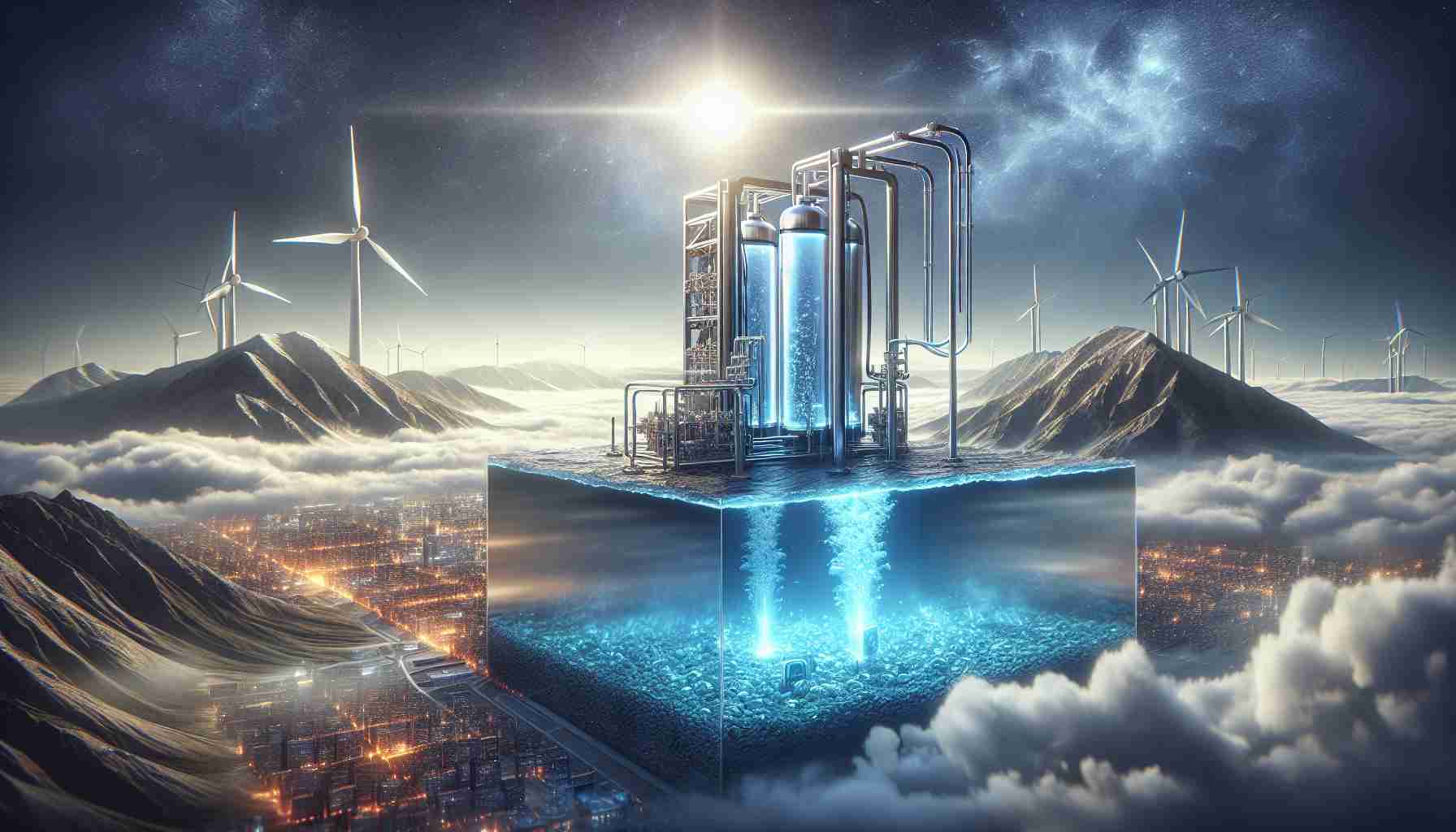The Future of Portable Energy Has Arrived
A groundbreaking innovation in hydrogen energy is set to transform our energy landscape with the introduction of a new 1 kW hydrogen fuel cell. This advancement marks a turning point for clean energy, which has been long praised for its environmentally friendly attributes. Unlike conventional batteries, these fuel cells only emit water vapor while generating electricity, making them a standout sustainable energy alternative.
The newly designed fuel cell is compact and lightweight, making it suitable for numerous applications. From supporting long-distance electric vehicles to offering reliable energy in remote areas, its versatility is impressive. Key progress in boosting both efficiency and affordability signifies an important leap; researchers have significantly reduced dependency on expensive materials like platinum, traditionally a barrier to wider use.
This innovation also aligns with global efforts to cut carbon emissions, potentially shaping the future of multiple industries. As hydrogen solutions gain traction, their widespread adoption could aid in the fight against climate change.
In summary, this 1 kW hydrogen fuel cell is paving the way for a new era of sustainable energy, transforming everyday power use and fostering a cleaner, greener planet. The implications for energy consumption, from consumer electronics to emergency power needs, could be profound as societies transition towards cleaner power sources. The hydrogen revolution is not just a dream—it’s becoming a reality.
Beyond the Horizon: Implications of Hydrogen Fuel Innovation
The advent of the 1 kW hydrogen fuel cell is not merely a technological milestone; it stands to reshape societal norms, cultural paradigms, and economic dynamics in profound ways. As individuals increasingly prioritize sustainable living, the integration of hydrogen energy into daily life presents opportunities for enhanced energy independence. In rural and underserved areas, where power delivery is often inconsistent, portable hydrogen solutions could foster community resilience, enabling local businesses and enhancing quality of life.
From a global economic perspective, a widespread transition to hydrogen fuel could revitalize industries such as transportation and manufacturing. Job creation in the green tech sector may surge, alongside shifts in investment trends towards clean energy initiatives. Countries rich in renewable resources for hydrogen production stand to benefit significantly, potentially altering geopolitical balances as nations leverage their clean energy capabilities.
However, this revolutionary technology is not without its environmental implications. While hydrogen boasts fewer emissions, the methods of hydrogen production remain crucial. The shift toward “green hydrogen,” derived from renewable resources, will be essential in ensuring that the growth of this sector contributes positively to global sustainability goals. As innovation continues, monitoring these methods will be vital for establishing standards that maximize benefit while minimizing ecological impact.
Overall, the long-term significance of this fuel cell technology reaches far beyond electrical output; it embodies a potential societal shift toward greater sustainability, economic revitalization, and environmental stewardship. The momentum generated by this innovation hints at a future where clean energy is not just desired but realized.
The Portable Hydrogen Revolution: Transforming Our Energy Future
The Future of Portable Energy Has Arrived
A groundbreaking innovation in hydrogen energy is set to transform our energy landscape with the introduction of a new 1 kW hydrogen fuel cell. This advancement marks a turning point for clean energy, known for its environmentally friendly attributes. Unlike conventional batteries, these fuel cells emit only water vapor while generating electricity, establishing them as a leading sustainable energy alternative.
Features of the 1 kW Hydrogen Fuel Cell
1. Compact and Lightweight Design: The new fuel cell is engineered for portability, making it suitable for various applications, including electric vehicles, portable power for tools, and providing energy in remote or disaster-stricken areas.
2. Sustainable Operation: With a sole byproduct of water vapor, the fuel cell represents a significant step towards environmentally responsible energy solutions.
3. Cost-Effective Materials: Significant advancements have led to a reduction in the reliance on costly materials like platinum, improving both the efficiency and affordability of hydrogen fuel cells.
Use Cases and Applications
– Long-Distance Electric Vehicles: The 1 kW hydrogen fuel cell can provide extended range solutions for electric vehicles, enhancing their viability as a sustainable transportation option.
– Backup and Emergency Power: In remote locations or during power outages, this technology can serve as a reliable backup energy source.
– Portable Energy Solutions: It can power small consumer electronics, camping gear, and other battery-operated devices, promoting greater outdoor experiences without reliance on traditional batteries.
Pros and Cons of Hydrogen Fuel Cells
Pros:
– Environmentally friendly with zero harmful emissions.
– High efficiency and low operational costs.
– Versatile applications across various sectors.
Cons:
– Infrastructure for hydrogen production and distribution is still developing.
– Production of hydrogen can sometimes rely on non-renewable energy sources, depending on the method used.
Market Trends and Innovations
The rise of hydrogen fuel cell technology aligns with global efforts to reduce carbon emissions. As industries move towards sustainable practices, hydrogen energy is positioned to play a critical role in this transition. Continued innovations are expected, focusing on improving hydrogen production methods, efficiency in fuel cells, and the expansion of an infrastructure that supports widespread adoption.
Security and Sustainability Aspects
Transitioning to hydrogen fuel cells offers both environmental and energy security benefits. By relying on abundant resources for hydrogen production, societies can reduce dependence on fossil fuels. Furthermore, the technology’s potential for decentralized energy generation means increased resilience against natural disasters or supply chain disruptions.
Pricing and Accessibility
While the initial investment in hydrogen fuel cell technology has been relatively high, ongoing reductions in material costs and production techniques are gradually making this technology more accessible. The scalability of manufacturing processes will further drive down prices, paving the way for more widespread adoption.
Predictions for the Future
Looking ahead, experts suggest that hydrogen fuel cells could become a standard in portable energy solutions within the next decade. As further research and development take place, and as global energy policies increasingly favor sustainable options, the integration of hydrogen into everyday life appears promising.
For more in-depth information on renewable energy innovations, visit Energy.gov.
